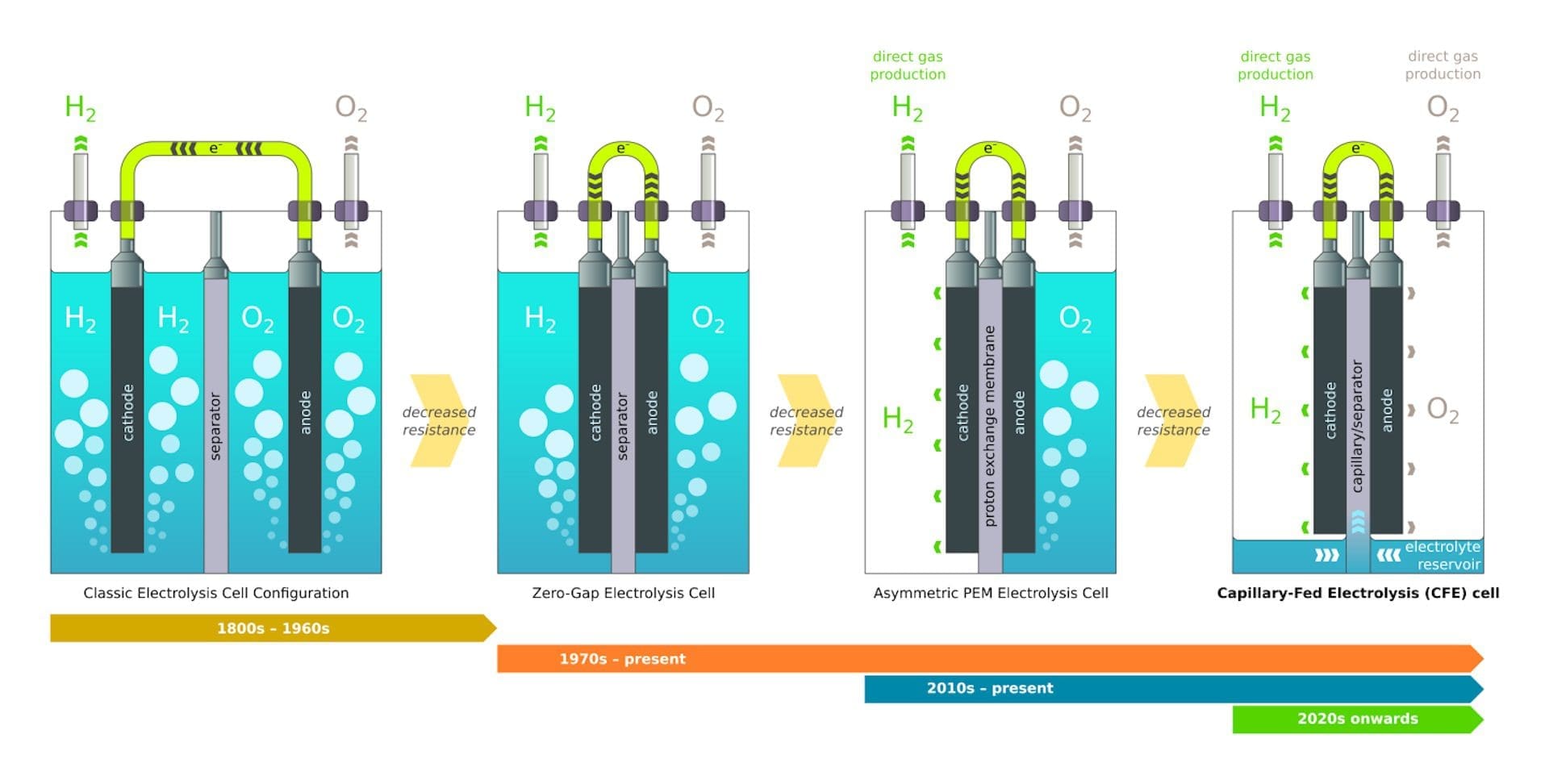Would you like to get notifications from Christian?
Een kilogram waterstof bevat 39,4 kWh energie, maar kost gewoonlijk ongeveer 52,5 kWh energie om te produceren met de huidige commerciële elektrolyse-installaties. Het Australische bedrijf Hysata zegt dat zijn nieuwe capillair gevoede elektrolysecel die energiekosten terugbrengt tot 41,5 kWh, waarmee het efficiëntierecord wordt gebroken en het bedrijf bovendien goedkoper is in installatie en gebruik. Het bedrijf belooft binnen enkele jaren groene waterstof tegen ongeveer 1,50 US$ per kilo.

Hysata Corporation heeft een revolutionaire nieuwe manier ontwikkeld om waterstof uit water te produceren, waarbij dure apparatuur zoals pompen en gas-vloeistofafscheiders, die in conventionele systemen voor de productie van waterstof uit water worden gebruikt, overbodig worden. De efficiëntie van een brandstofcel kan worden verhoogd door gebruik te maken van een nieuw soort elektrodemateriaal dat is ontwikkeld door een Australisch bedrijf met de naam Hysata, waardoor de energiekosten voor de productie van waterstof in slechts enkele jaren tijd worden teruggebracht tot ongeveer 1 $/kg.
Hysta's nieuwe toestel zou een omwenteling teweeg kunnen brengen in de economische mogelijkheden om met behulp van elektriciteit schoon H2 uit water te produceren. Waterstofbrandstofcellen zijn een veelbelovende technologie om elektrische voertuigen van schone en efficiënte energie te voorzien.
Christian is a futurist and trendwatcher who speaks about the impact of exponential technologies like AI on organizations, people, and talents. Christian tailors his presentations to your audience's specific industries and needs.



Our world is changing at an exponential rate! A big tidal wave of digital transformation and disruption is coming at us fast. Many organizations see this wave as a threat and experience stress, but there are also organizations that just see this wave as an opportunity.

Imagine sitting with just 10-15 fellow executives at a premier location, gaining clarity on the impact of AI on your industry while enjoying an exquisite dining experience. These are not just meetings—they are transformative moments that will shape the future of your organization



In the future, 3D printing and generative design will allow for products to be designed in a more decentralized manner, and production will take place closer to the customer and fully on-demand. 3D printing technology will also allow for more customization and personalization of products.


The agricultural industry is ripe for disruption. Robotics, AI, and IoT are all technologies that have the potential to radically transform the way we grow food. In combination with vertical farming, these technologies could increase the efficiency and quality of agricultural products.

A human-centered society is one that puts people first and where technology is used to unite and empower people. It is a society that values biological life and dignity above all else. It is a society that recognizes the importance of human relationships and works to strengthen them. In a human-centered society, all members of the community are valued and treated with respect.


The future of healthcare is here. New technologies like AI, IoT, big data, and smart sensors make it possible to become the CEO of your own health. Imagine that your phone can listen to your voice and AI algorithms can detect small nuances in the tone of your voice that indicate specific diseases.
